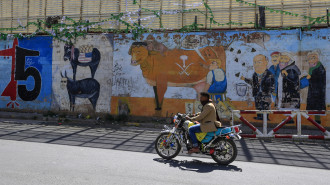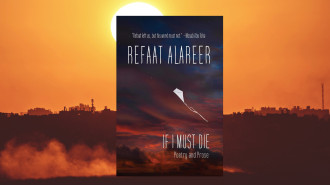Where is the great Arab anti-war novel?
In his short introduction to his novel War and Peace, Leo Tolstoy asks himself why millions of humans have fought and killed each other, even though none of them held out much hope that war would improve their situation and all faced the threat that war would make their situation worse. Who ordered them to do what they did? And why did they do it?
With those questions in mind, what makes the whole of humanity celebrate Homer’s Iliad, given that it was written
| Instead of questioning war, we see a culture that hardly flinches at the number of victims in its history. |
to glorify a vengeful war launched by the Greeks against Troy? And where Tolstoy described war as a strange and irrational event, Arab culture has not yet shown the same inquiry into war, despite the Arab region suffering almost unbroken conflict from the start of the twentieth century until today? These were wars that left thousands of men, women and children victims, for little or no reason.
Instead of questioning war, we see a culture that hardly flinches at the number of victims in its history, present and foreseeable future. In fact, we see instead an avoidance to talk about the immorality of war, in some cases rather a prose summoning famous figures in Arab poetry that glorified war, fighting and weapons. There is scant attention paid to humanitarian or moral considerations that elevate mankind. Thus, “the sword is more veracious than the book” as goes the famous verse by Abu Tammam, the Abbasid era poet.
There are also those who have avoided dealing with the moral, humanitarian and intellectual implications of our war with Israel, while instead boasting about the justness of these wars, which has not been fought appropriately by neither Arab armies or culture. They call for what some Arab authors have dubbed as “the literature of war”, in an effort to compensate the long-term losses that have resulted after 60 years of confrontations with the enemy.
It is notable that the literature of war being promoted by some Arab authors is not really concerned with literature or any artistic merit that grants a piece of writing the descripting of literature. Instead they suffice with hollow slogans such as “the literature of war is the heavyweight spiritual ammunition, which alone possesses the capabilities to reshape conscience”, as Ghali Shukri wrote after the October 1973 war. Another example is when Hanna Mina and Najah al-Attar chastised Arab authors in their Adab al-Harb: “do they bet on their writings more than they do on the victories of their nation?”
In modern Arab literature, we have only seen a few works that expose the atrocities of war, even if they were just wars, such as Yusuf al-Qaid’s War in the Land of Egypt. However, political prejudice still overshadows the human impact of war, therefore we do not see calls for the literature of victims, of destroyed cities and villages, of the destruction of life or of human sorrow.
Opinions expressed in this article remain those of the author and do not necessarily reflect the opinions of al-Araby al-Jadeed, its editorial board or staff.
This is an edited translation from our Arabic edition.







 Follow the Middle East's top stories in English at The New Arab on Google News
Follow the Middle East's top stories in English at The New Arab on Google News


